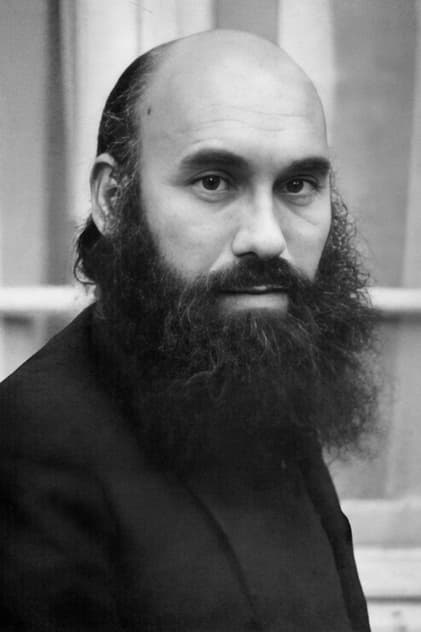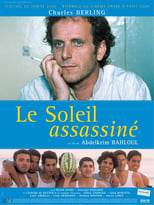

Jean Sénac
Born: November 29, 1926
Died: August 18, 1973
in Béni Saf, Algeria
Died: August 18, 1973
in Béni Saf, Algeria
Jean Sénac (جان سيناك), born in Béni-Saf in Algeria, on November 29, 1926 and assassinated in Algiers on August 30, 1973 (without the case being clarified), is an Algerian Christian, socialist and libertarian poet. In 1955 he joined the cause of Algerian independence.
Originally from Catalonia, his maternal grandfather, Juan Comma, came to Algeria to work in the Béni-Saf iron mine. Jean Sénac, who did not know his father, perhaps a gypsy, bore the name of his mother, Jeanne Comma (1887-1965), until the age of five and his recognition by Edmond Sénac. He spent his childhood and adolescence in Saint-Eugène, a working-class district of Oran. Demobilized in March 1946, Jean Sénac found work as a secretary in a business house in Belcourt, staying with cousins in Bab El Oued. In June 1946 he founded the Lélian artistic and literary circle of which he was president. The same year he met Emmanuel Roblès, the sculptor André Greck, the architect and painter Jean de Maisonseul, and in 1947 Sauveur Galliéro, Louis Nallard, Maria Manton, Louis Bénisti on whom he published articles in “ Republican Oran”. In October 1952, he resumed his activity as a radio broadcaster. Bringing together in its editorial committee Mohammed Dib, Sauveur Galliéro, Jean de Maisonseul, Mouloud Mammeri, Albert Memmi and Louis Nallard. In the midst of the Arabization of the country, culture and language, the manifesto of Sénac (to whom Algerian literature in French writing is largely indebted for a work of updating and theorization, which did not exist ) appears as a final provocation for which its author will pay dearly: little by little, almost all doors close, not those of people, but of state organizations without which nothing is possible in a country living under the sign of statism. This manifesto calls for a Mediterranean, united, socialist, egalitarian, Arab, Berber and pied-noir Algeria, with Arabic, Berber and French scripts. Kateb Yacine then said nothing else (in Les Lettres françaises, 1963): “There is no Berber Algeria, there is no Arab Algeria, there is no French Algeria : there is an Algeria. It is a very rich nation to the extent that it is multinational.”
“Algerian poet of French writing”, as he defined himself, died murdered in his cellar-lookout in Algiers, on the night of August 29 to 30, 1973. Jean Sénac was the first martyr in a horrible list . The French did not forgive him for having been a member of the F.L.N. during the War of Independence; and the Algerian government had difficulty supporting its very critical positions with regard to the bureaucratic system in place. Jean Sénac was a completely undesirable man. His audience with young people, his life, his homosexuality, his freedom of speech in political or cultural matters, the repercussions abroad of his judgments on Algeria, made him an embarrassing character for many people. There are therefore many people who could benefit from crime. Jean Sénac felt this death lurking: Why follow this trail – everything is concluded in advance – when you wash my face – the sun will no longer be there.
Originally from Catalonia, his maternal grandfather, Juan Comma, came to Algeria to work in the Béni-Saf iron mine. Jean Sénac, who did not know his father, perhaps a gypsy, bore the name of his mother, Jeanne Comma (1887-1965), until the age of five and his recognition by Edmond Sénac. He spent his childhood and adolescence in Saint-Eugène, a working-class district of Oran. Demobilized in March 1946, Jean Sénac found work as a secretary in a business house in Belcourt, staying with cousins in Bab El Oued. In June 1946 he founded the Lélian artistic and literary circle of which he was president. The same year he met Emmanuel Roblès, the sculptor André Greck, the architect and painter Jean de Maisonseul, and in 1947 Sauveur Galliéro, Louis Nallard, Maria Manton, Louis Bénisti on whom he published articles in “ Republican Oran”. In October 1952, he resumed his activity as a radio broadcaster. Bringing together in its editorial committee Mohammed Dib, Sauveur Galliéro, Jean de Maisonseul, Mouloud Mammeri, Albert Memmi and Louis Nallard. In the midst of the Arabization of the country, culture and language, the manifesto of Sénac (to whom Algerian literature in French writing is largely indebted for a work of updating and theorization, which did not exist ) appears as a final provocation for which its author will pay dearly: little by little, almost all doors close, not those of people, but of state organizations without which nothing is possible in a country living under the sign of statism. This manifesto calls for a Mediterranean, united, socialist, egalitarian, Arab, Berber and pied-noir Algeria, with Arabic, Berber and French scripts. Kateb Yacine then said nothing else (in Les Lettres françaises, 1963): “There is no Berber Algeria, there is no Arab Algeria, there is no French Algeria : there is an Algeria. It is a very rich nation to the extent that it is multinational.”
“Algerian poet of French writing”, as he defined himself, died murdered in his cellar-lookout in Algiers, on the night of August 29 to 30, 1973. Jean Sénac was the first martyr in a horrible list . The French did not forgive him for having been a member of the F.L.N. during the War of Independence; and the Algerian government had difficulty supporting its very critical positions with regard to the bureaucratic system in place. Jean Sénac was a completely undesirable man. His audience with young people, his life, his homosexuality, his freedom of speech in political or cultural matters, the repercussions abroad of his judgments on Algeria, made him an embarrassing character for many people. There are therefore many people who could benefit from crime. Jean Sénac felt this death lurking: Why follow this trail – everything is concluded in advance – when you wash my face – the sun will no longer be there.
Movies for Jean Sénac...

Title: Sénac, Jean. Algérien, Poète.
Character: Self (archive footage)
Released: January 1, 2011
Type: Movie
Jean Sénac, born in Béni Saf in Algeria in 1926 and died in Algiers in 1973, is today considered one of the great French writers and poets and the only one of his reputation to have accompanied the Algerian revolution before November 1954. part of all the debates and got involved, very early and with immense enthusiasm, in a work of commitment which ended badly. His poetry, his sexual preferences and his political lyricism work against him: rejected as much by the Pieds Noirs as by the FLN activists then by the power in place in Algiers, Jean Sénac was assassinated in 1973 at his home in Algiers, in circumstances never clarified.


Title: The Sun Assassinated
Character: (relative character)
Released: August 18, 2004
Type: Movie
The poet Jean Sénac, also a radio host, chose to stay in Algeria after his country's independence in 1962. Ten years later, a protester and libertarian, he was monitored by the regime's police. His poems attract a popular audience and his show is a real success with young people. Also, when Hamid and Belkacem, two students, learn that the play they wrote and presented at the first national Algerian theater festival is downgraded under the pretext that they performed it in French, their pain will be alleviated by the presence behind the scenes by Jean Sénac who congratulates them. The latter will become close friends of the poet and witness his fight for the freedom and culture of Algerian youth. A fight which would lead Sénac to martyrdom: one night in August 1973, he was assassinated in the cellar which served as his apartment. Hamid is accused of the murder.


Title: Jean Sénac, The Blacksmith of the Sun
Character: Self (archive footage)
Released: January 1, 2003
Type: Movie
By ending the life of Jean Senac on August 30, 1973 in Algiers, his assassins believed they would silence him forever. They were wrong since his voice is a little louder every day. Witnesses to these craze: the publication of the complete works of this great poet, the countless conferences and radio broadcasts devoted to him and finally the production of films such as "Jean Sénac, the blacksmith of the sun". The moving and overwhelming testimonies of those who knew him, the unpublished film archives, the generous voice of the poet on the radio, the discovery of his travels in the territories of poetry and politics make this film a precious document on the life of Jean Senac.


Title: A Propos D'Un Crime
Character: Self
Released: January 1, 1967
Type: Movie
In 1967, Visconti came to Algiers for the filming of The Stranger with Mastroianni and Anna Karina. Camus, during his lifetime, had always refused to allow one of his novels to be brought to the screen. His family made another decision. The filming of the film was experienced in Algiers, like a posthumous return of the writer to Algiers. During filming, a young filmmaker specializing in documentaries Gérard Patris attempts a report on the impact of the filming of The Stranger on the Algerians. Interspersed with sequences from the shooting of Visconti's film, he films Poncet, Maisonseul, Bénisti and Sénac, friends of Camus, in full discussions to situate Camus and his work in a sociological and historical context. “The idea is for us to show people, others, ourselves as if they could all be Meursault, or at least the witnesses concerned to his drama.”
